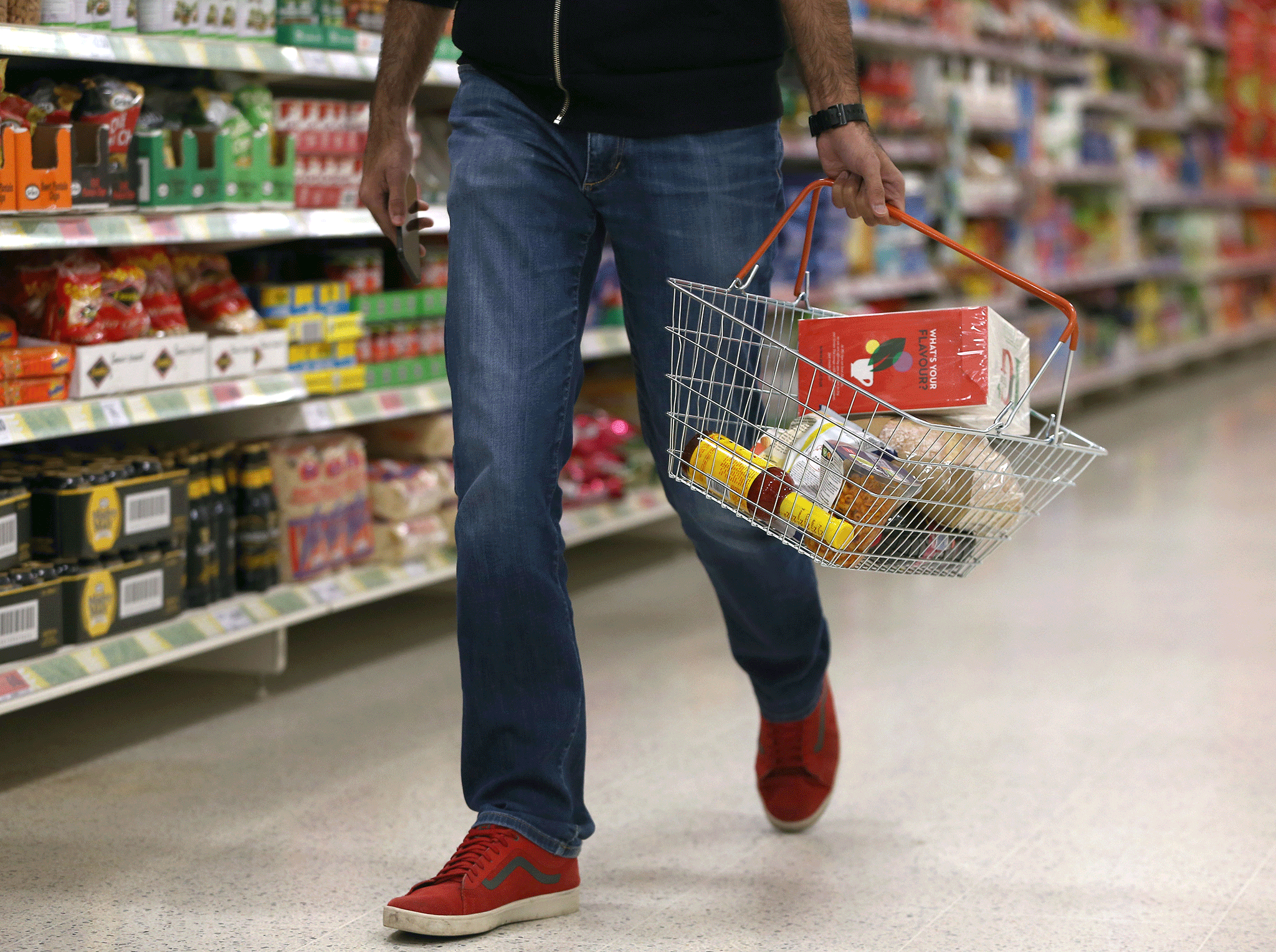Brexit will cause ‘gaps on food shelves’ if deals with EU are not struck, warns trade body
More than three-quarters of groceries imported by the UK comes from EU countries

Brexit could ramp up the cost of groceries and reduce the availability of certain foods in UK supermarkets, a leading trade body has warned.
The British Retail Consortium, in a report published on Wednesday, said that not cutting red tape ahead of the March 2019 Brexit deadline could lead to supply chain delays, disruptions and a rise in the cost of certain imported foods in British shops.
Border controls, the organisation cautioned, risk creating “gaps on shelves” and the Government must act swiftly to avoid a squeeze for British shoppers.
“A strong deal on customs is absolutely essential to deliver a fair Brexit for consumers,” said Helen Dickinson, chief executive of the BRC. “Whilst the Government has acknowledged the need to avoid a cliff-edge after Brexit day, a customs union in itself won’t solve the problem of delays at ports.”
Ms Dickinson said that agreements on security, transit, haulage, drivers, value added tax and other checks are also essential for getting “systems ready for March 2019”, when the UK is due to split from the EU.
“We want to work with the Government to develop a system which works for consumers, so that there’s no difference in terms of the availability of affordable, quality products when they make purchases or visit stores post-Brexit,” she said.
More than three-quarters of food imported by the UK currently comes from EU countries.
According to HRMC, exiting the EU on World Trade Organisation terms – meaning without a deal with Brussels – would lead to 180,000 extra firms being drawn into customs declarations for the first time. That would translate into the number of annual customs declarations rising from 55 million to 255 million from March 2019.
As a result of this, no-deal before Brexit could result in delays of up to two to three days at ports, the BRC says.
Four million trucks currently cross the UK’s borders annually and the cost of holding a delayed driver with a refrigerated lorry at a port for one day is £500, according to the BRC.
The report echoes similar warnings issued by think tanks, trade bodies and academics in recent months, both on the impact and availability of food, but also on the free movement of labour within an industry highly reliant on migrant workers.
In July, a report compiled by food experts and published by the University of Sussex underscored the risk of Brexit causing “chaos” as a result of food prices rising, and safety standards falling. Like the BRC, academics also flagged the risk of certain foods becoming less readily available after March 2019.
The Institute for Fiscal Studies also last month warned that UK households could face “considerable and unpredictable” fluctuations in food prices after Brexit thanks to increased trade barriers and a weak pound.
Wednesday’s BRC report also stressed the importance of cross-border trade with the Republic of Ireland.
The 310-mile Northern Ireland-Republic of Ireland border will become the only physical land border between the UK and EU after Brexit, with hundreds of crossing points.
The BRC said that it will be a priority for both the UK and the EU to ensure the border does not make the “dumping of goods on markets easier and the ability to track food through all stages of production harder” than it currently is.
“For the transitional period, a customs union relationship between the UK and EU would help with the implications for trade and the Irish border,” the BRC said.
It also highlighted the importance of the UK maintaining a strong trading relationship Turkey once it no longer benefits from the EU’s customs deal with the country.
A total of 3 per cent of non-food imports into the UK come from Turkey. The country is an important part of the supply chain, particularly for the textiles industry and clothes shops.
Subscribe to Independent Premium to bookmark this article
Want to bookmark your favourite articles and stories to read or reference later? Start your Independent Premium subscription today.

Join our commenting forum
Join thought-provoking conversations, follow other Independent readers and see their replies